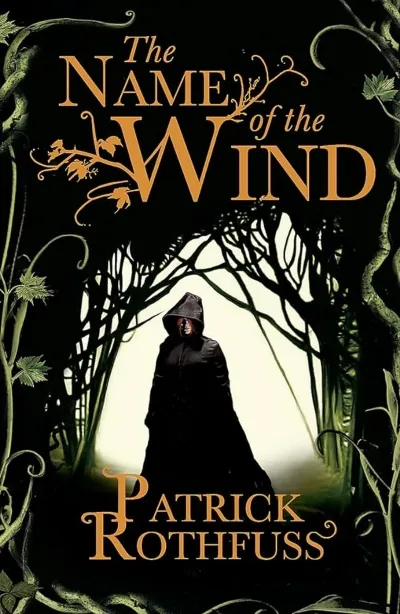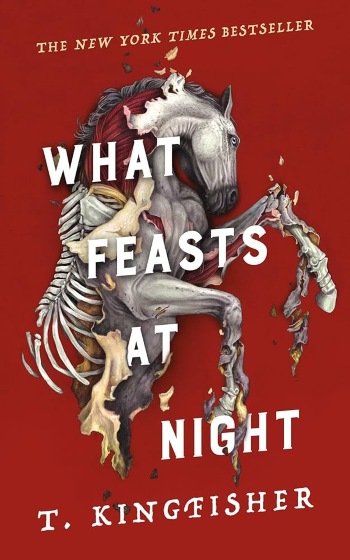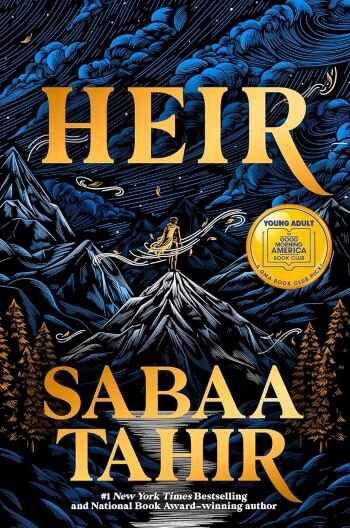Book Review | The Name of the Wind, Patrick Rothfuss
This review highlights the strengths of Rothfuss’ storytelling while acknowledging the novel’s slower pacing. The combination of Kvothe’s complex character and Rothfuss’ lyrical prose makes The Name of the Wind an unforgettable read.
The Name of the Wind by Patrick Rothfuss is a captivating fantasy novel that tells the story of Kvothe, a legendary figure shrouded in myth, recounting his journey from a young boy to a powerful arcanist. In this book review, we’ll dive into Rothfuss’ masterful world-building, character development, and the lyrical prose that elevates this book within the fantasy genre. Whether you’re new to the series or revisiting Kvothe’s tale, The Name of the Wind offers an unforgettable reading experience.

World-Building and Magic System
Rothfuss creates a richly detailed world where music, magic, and myth intersect. In The Name of the Wind, the setting plays a pivotal role, immersing readers in an environment filled with deep history, intricate politics, and a unique system of magic. The magic system, based on the practice of “sympathy,” is both complex and believable, grounded in scientific-like principles.
Things to note:
- Sympathy: The primary form of magic, where practitioners create physical connections between objects to manipulate them.
- The University: The school where Kvothe learns magic, a place of both opportunity and danger.
- The Chandrian: Mysterious, mythical figures who play a major role in Kvothe’s tragic past.
The way Rothfuss integrates these elements into the world makes it feel authentic and alive, pulling readers deeper into Kvothe’s journey.
Character Development and Prose
Kvothe is the heart of The Name of the Wind. As both the protagonist and narrator, his voice is one of the novel’s greatest strengths. Rothfuss balances Kvothe’s brilliance with his deep flaws, making him a relatable yet larger-than-life character. One of the most memorable quotes from the book comes from Kvothe reflecting on his legacy:
“My name is Kvothe. You may have heard of me.”
This line encapsulates the central tension of the novel: Kvothe’s reputation as a mythic figure versus the reality of his struggles and failures. The beauty of Rothfuss’ prose elevates the entire narrative, with each sentence carefully crafted to evoke emotion, wonder, and a sense of timelessness.
Themes Explored in the Novel
In this fantasy book review, we explore how Rothfuss delves into deep themes of storytelling, identity, and loss. The novel’s structure—a story within a story—allows Kvothe to reflect on the choices that led him to his current state, often highlighting the blurry line between myth and truth.
- Storytelling: Kvothe’s narrative emphasizes the power of stories, showing how they shape people’s perceptions of the world around them.
- Identity: Kvothe struggles with his sense of self, torn between the legend others see and the reality of his flaws.
- Loss and Tragedy: Kvothe’s story centers on loss—his family, his innocence, and the life he once dreamed of having.
These themes give the novel depth and weight, making it more than just an adventure tale. They also make readers question how much of what we know of Kvothe is the truth, and how much is myth.
Pacing and Structure
One potential drawback of The Name of the Wind is its pacing. The novel takes its time, allowing readers to savor every detail, but this can make the plot feel slow at times. However, Patrick Rothfuss‘ writing keeps you engaged, making even the quiet moments feel important. In the words of Kvothe,
“It’s the questions we can’t answer that teach us the most.”
This quote captures the novel’s focus on the journey, with slow pacing allowing for rich world, character, and theme development.
For readers who prefer fast-paced, action-heavy narratives, this might feel like a challenge. However, those who appreciate rich world-building and introspective character arcs will find the pacing rewarding.
Conclusion and Final Thoughts
The Name of the Wind is a standout in modern fantasy, combining beautifully crafted prose with a deeply immersive world and complex characters. Kvothe’s journey is both thrilling and heartbreaking, filled with moments of triumph and tragedy. Rothfuss’ storytelling skill shines through, making this a novel that lingers with readers long after they’ve turned the final page.
For fans of fantasy looking for a book that prioritizes character and theme over sheer action, The Name of the Wind is a must-read. Rothfuss has created something truly special in this first installment of The Kingkiller Chronicle.






